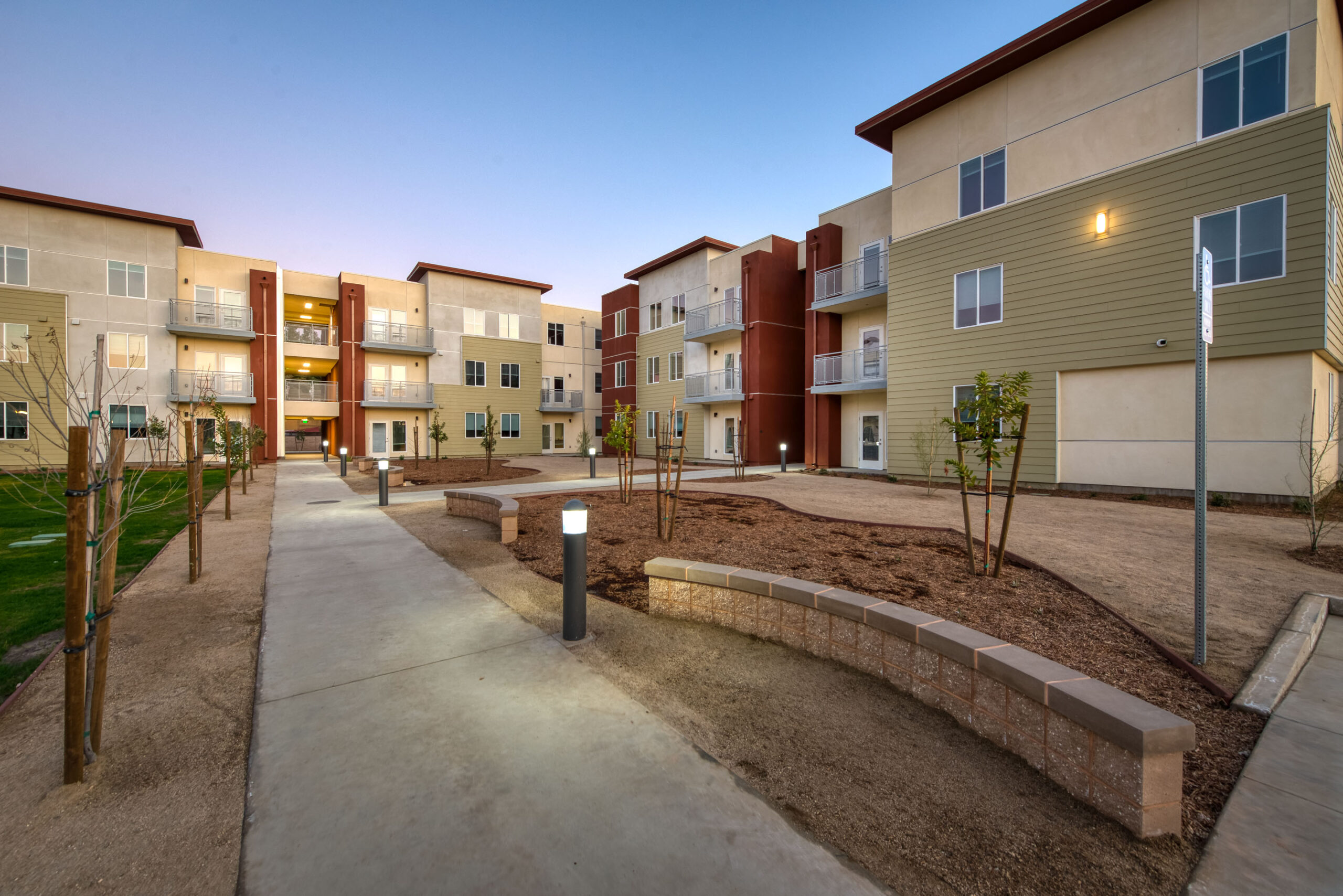In honor of National Fair Housing Month, we sat down with Chavez Foundation’s Chief Operating Officer Manuel Bernal to learn more about the Chavez Foundation’s role in access to fair and affordable housing.
What is fair housing?
It is illegal to discriminate in the sale or rental of housing, including against individuals seeking a mortgage or housing assistance, or in other housing-related activities. The Fair Housing Act prohibits this discrimination because of race, color, national origin, religion, sex, familial status, and disability.
How are fair housing and affordable housing interconnected?
The Fair Housing Act applies to everyone, market rate and affordable housing. However, because public funds—at various levels of government—drive the development of affordable housing, the scrutiny placed on affordable housing developers and operators tends to be much more stringent; and tenants have many more sympathetic avenues to listen to their concerns. In fact, a substantial function for all affordable housing developers and operators is “Compliance.” While the Compliance function has many sub-functions, a prominent sub-function is compliance to local, state and Federal Fair Housing laws.
How does affordable housing help to strengthen families and communities?
The driving concept behind affordable housing is that for some families the market costs of renting or owning their shelter exceeds their ability to pay—usually taking 33% of their income; an affordability gap exists. Affordable housing fills that gap by either providing rental or ownership subsidies, or reducing the production and/or operating costs so that families can afford the shelter. By filling the affordability gap, in various ways, affordable housing strengthens families by (1) not having to have multiple jobs to afford the rent or mortgage, thus increasing family time, (2) allowing them to redirect their remaining resources to other essential items like food and healthcare and (3) allowing them to save money to invest in themselves—like education for themselves and their children, purchasing a home, opening up a business, etc.
Affordable housing not only strengthens families but strengthens communities as well. Affordable housing fosters diversity in communities by allowing families to live where otherwise they would not be able to afford. In turn, diversity fosters understanding among people that otherwise would not interact. Also, affordable housing is an economic development tool for communities. It brings tax revenue and disposable income spending. Finally, affordable housing is a long-term asset for communities. Affordable housing will positively impact communities for the useful life of the development, which tends to be at least 50 years.
What are some long-term solutions to fair and affordable housing?
Fair Housing is an on-going battle against discriminatory practices by those who control housing finance, development and operations. When people’s mindsets are at play, it is hard to imagine that, at a practical level, Fair Housing for all will ever be achieved. You cannot put a number to that. Which only means that we as a society must find the means, energy and tools to continue this on-going battle.
Similarly, resolving affordable housing seems equally daunting. But since the affordable housing problem is primarily a numbers game (e.g. the gap between the cost of housing and what people can afford to pay), and not a mindset change, at least in theory affordable housing seems easier to solve. Resources would have to be invested in reducing the cost of housing AND increasing the incomes of families. You can put a number to that.
What happens when communities don’t have access to fair and affordable housing?
Housing is a basic need. When adequate housing is not available, the ills that plague societies manifest themselves in varying degrees. Just look around to identify our socials ills, and many can be traced to the lack of affordable housing.
When thinking of solutions to fair and affordable housing, what role does the Chavez Foundation play?
Housing discrimination and the lack of affordable housing have become gigantic and complex problems. While it is impossible for CCF to solve these problems on our own, we can make contributions. Our Housing and Economic Development team have been entrusted with leveraging $5 billion for underserved communities over the next 7 years. That investment will create thousands of affordable housing units, and thus make a substantial contribution to the supply of affordable housing in this country. In addition, CCF is committed to operating its affordable housing portfolio through its property management team. This will ensure consistent compliance on all our units for all our families to all local, state and Federal fair housing laws.
How does housing inequality connect to Cesar’s legacy?
Fair and affordable housing have a strong connection to Cesar’s legacy. Fair and affordable housing speaks to: addressing a basic human need; treating people with respect and dignity, leveling the playing field and giving families a chance at success; addressing the larger needs of families, in addition to workplace needs; helping communities thrive.
The Cesar Chavez Foundation builds and manages quality, affordable, multi-generational housing with amenities including Si Se Puede Learning Centers and Si Se Puede Senior Centers. Click here to learn more about the Chavez Foundation’s Housing and Economic Development Fund.

Manuel Bernal, President
Image: Las Palmas de Sal Gonzales, the Housing and Economic Development Fund’s newest energy-efficient property for low-income families and seniors in Fresno, Calif.

